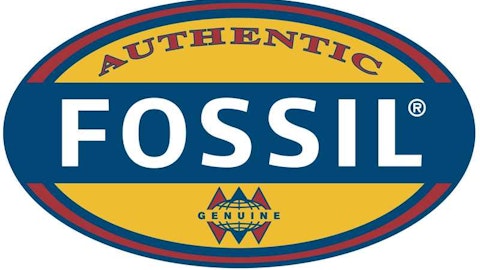The hottest tech term of our time is the Application Program Interface, or API. It’s time for Foolish investors to get hep to this jive.
An API is simply a programming method for using some larger programming framework. It’s a shorthand. Instead of writing a complex program to address, say, Google Inc (NASDAQ:GOOG) Maps, you use the API and get your job done in a fraction of the time.

The Value of an API is its Use
APIs are now the most valuable bits of programming real estate on the planet. But their value, as with open source, is based on how many people are using it, and the degree of their commitment to them.
Twitter is now worth $10 billion, pre-IPO, mainly because of its API. Many companies are using Twitter data for various forms of market research – the API makes it easy.
Codingthis compiled a list of the 10 essential APIs back in 2010 and it’s illustrative of how fast this world changes. Most are pretty obvious – Google Inc (NASDAQ:GOOG) Maps, Yahoo! Inc. (NASDAQ:YHOO)‘s Flickr, and Facebook Inc (NASDAQ:FB) are all represented – but some are less so, like Delicio.us, Digg, and Feedburner, which has faded in importance under Google Inc (NASDAQ:GOOG)’s ownership.
In other words, the list of key APIs is subject to change. Investors who track APIs can benefit from seeing the changing landscape.
Google Inc (NASDAQ:GOOG) Dominates the API World
Programmable Web‘s list of the most used APIs lists literally dozens of Google APIs, but the key properties are at the top of the list – Google Maps, Twitter, Google YouTube, Yahoo’s Flickr, Amazon.com, Inc. (NASDAQ:AMZN) eCommerce and Facebook.
Notice a company missing from the above lists? Now you know why Microsoft is trying to unify its Windows 8, Windows RT and Windows Phone platforms around (what else, class) an Application Program Interface.
One great place to track what’s happening in the API world is through the work of Kevin Sundstrom, who writes for Programmable Web. Kevin tracks the new uses of APIs as well as the business of APIs. Through him, for instance, we learn that Facebook’s Instagram is now being used for an iPhone app that tells people what’s happening in their town now, and that Urban Airship Push, an API that delivers specific content to mobile users, has gotten a $25 million capital infusion.
The real value of any tech company today lies in its APIs. Amazon’s stock price is at ridiculous levels mainly because the API of its Amazon EC2 cloud is considered an industry standard.
Google bulls are quick to point toward its API policies for their call on the stock, noting that if the API for Google Plus were opened for use by others, that service might rapidly become bigger than Facebook. Apple bears are quick to note the company’s refusal to fully open its APIs as limiting that company’s growth.
The Foolish Take on APIs
Google is the obvious play for those who love APIs, but it’s not the only one. The rapid growth of the cloud makes Amazon worth looking at, even at these levels.
If Apple Inc. (NASDAQ:AAPL) were to open up use of its APIs in a more robust manner, I’d be a buyer of that stock as well. It remains the sleeping giant of the API space. And I remain highly bullish on Yahoo specifically because that company is now coming to understand the API space, and its value, under a CEO who is also a developer.
The best news is that, thanks to this quick course on APIs, you now know what keeps Facebook stock up, and why Twitter may be the year’s hot IPO. Keep your eyes peeled for API news, for API usage statistics, and prosper.
The article APIs Key To Understanding High-Priced Internet Stocks originally appeared on Fool.com and is written by Dana Blankenhorn.
Copyright © 1995 – 2013 The Motley Fool, LLC. All rights reserved. The Motley Fool has a disclosure policy.





